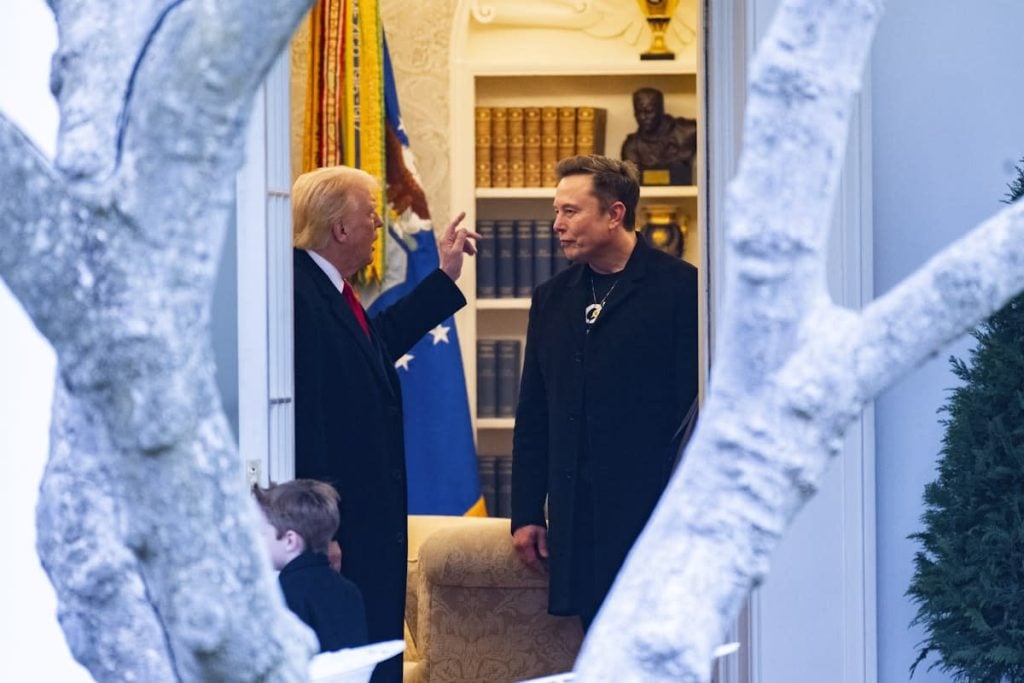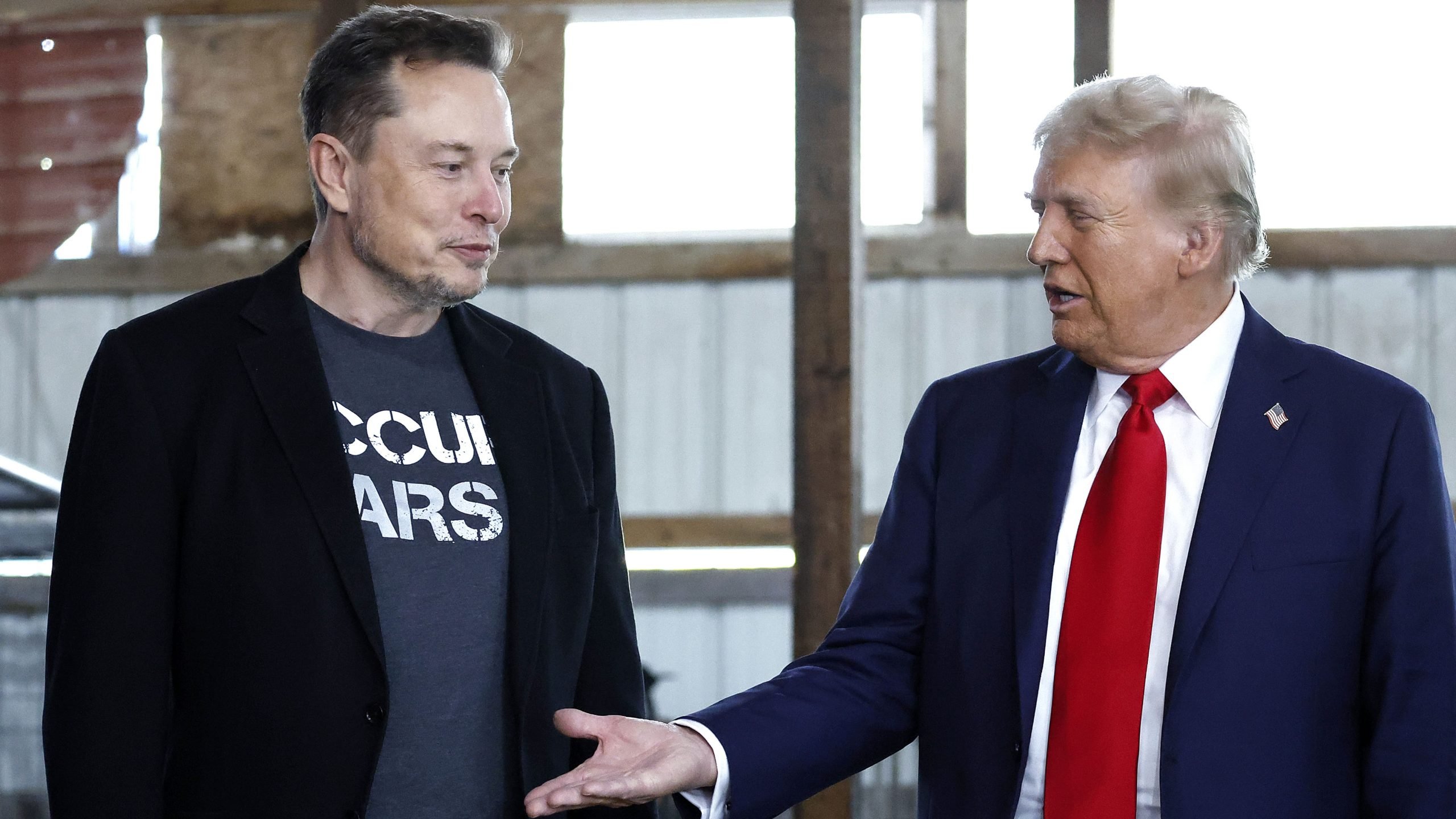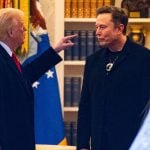In a dramatic turn of events, the once-close alliance between tech billionaire Elon Musk and President Donald Trump has unraveled into a public feud, centered around Trump’s signature legislative package, the “One Big Beautiful Bill Act” (OBBBA), often referred to as the “Big Beautiful Bill” (BBB). What began as a policy disagreement has escalated into a war of words, with personal insults, financial threats, and accusations of betrayal flying across social media platforms. This article delves into the details of the Big Beautiful Bill, the reasons behind the Musk-Trump conflict, and the broader implications for the Republican Party and American politics.
What Is the Big Beautiful Bill?
The One Big Beautiful Bill Act is a sprawling tax-and-spending reconciliation package championed by President Donald Trump as the centerpiece of his second-term domestic agenda. The 1,038-page legislation, which narrowly passed the House of Representatives in May 2025 with a vote of 215-214, combines a wide array of policy changes aimed at fulfilling Trump’s campaign promises. It is currently under consideration in the Senate, where it faces significant resistance. The bill leverages the budget reconciliation process, allowing it to pass with a simple majority and avoid a Democratic filibuster, but it requires careful navigation due to the Republican Party’s slim Senate majority.

Key Provisions of the Bill
The Big Beautiful Bill includes several high-profile measures, many of which have sparked controversy:
- Extension of 2017 Tax Cuts: The bill extends Trump’s 2017 tax cuts, providing significant tax relief, particularly for high-income earners and corporations. This is a cornerstone of Trump’s economic agenda but has raised concerns about increasing the federal deficit.
- Increased Defense and Border Security Spending: The legislation allocates substantial funds for military enhancements and immigration enforcement, including Trump’s mass deportation initiatives. These provisions align with Republican priorities but add to the bill’s cost.
- Elimination of Electric Vehicle (EV) Tax Credits: The bill repeals federal tax credits of up to $7,500 for new electric vehicle purchases and $4,000 for used EVs, a move that directly impacts companies like Tesla, led by Musk.
- Medicaid and Social Program Cuts: The bill imposes work requirements on Medicaid and reduces funding for programs like SNAP (food stamps), potentially stripping health coverage from nearly 11 million Americans, according to the Congressional Budget Office (CBO).
- Debt Ceiling Increase: The legislation raises the federal debt ceiling by $4 trillion to accommodate its spending and tax cuts, a provision that has drawn fierce criticism from fiscal conservatives.
- State and Local Tax (SALT) Deduction Expansion: The bill increases the SALT deduction cap from $10,000 to $40,000, a concession to House Republicans from high-tax states like New York and New Jersey. However, this has been contentious among Senate Republicans.
- Other Provisions: The bill includes measures to weaken federal judicial enforcement powers and roll back clean energy incentives established under the Inflation Reduction Act, further fueling opposition from both progressive and fiscally conservative factions.
The CBO estimates that the bill will increase the federal deficit by $2.4 trillion to $3.8 trillion over the next decade, with some independent analyses projecting up to $5 trillion. This significant fiscal impact has become a flashpoint in the Musk-Trump feud.
The Musk-Trump Alliance: A Brief History
Elon Musk and Donald Trump’s partnership began during the 2024 presidential campaign when Musk emerged as one of Trump’s most prominent supporters. Musk, the CEO of Tesla, SpaceX, and X, donated over $290 million to Trump’s campaign and Republican candidates through his America PAC, making him one of the largest political donors of the cycle. His financial backing and vocal endorsements, including appearances at Trump rallies, were credited with helping secure key electoral victories, particularly in swing states like Pennsylvania.
Upon Trump’s inauguration in January 2025, Musk was appointed as a “special government employee” to lead the Department of Government Efficiency (DOGE), a temporary initiative aimed at slashing federal spending and bureaucracy. Musk’s tenure at DOGE was marked by aggressive cost-cutting measures, including mass layoffs of federal employees and the elimination of entire agencies, such as the U.S. Agency for International Development (USAID). While DOGE claimed to have saved $180 billion, Musk fell far short of his ambitious $2 trillion target, and his actions sparked widespread backlash, legal challenges, and protests targeting Tesla facilities.
Despite initial mutual admiration—Musk called Trump “a truly great American,” and Trump showcased Tesla vehicles on the White House lawn—their relationship began to fray as policy differences and personal clashes surfaced. Musk’s departure from DOGE on May 31, 2025, marked the beginning of open hostilities, culminating in his scathing criticism of the Big Beautiful Bill.
Why Are Musk and Trump Fighting?
The feud between Musk and Trump over the Big Beautiful Bill is rooted in a combination of policy disagreements, personal slights, and competing egos. Several key factors have contributed to the breakdown of their alliance:
1. Deficit Spending and DOGE’s Mission
Musk’s primary objection to the Big Beautiful Bill is its projected impact on the federal deficit, which he argues undermines the cost-cutting work he championed at DOGE. In a series of posts on X, Musk called the bill a “disgusting abomination” and a “massive, outrageous, pork-filled Congressional spending bill” that would increase the deficit to $2.5 trillion and saddle Americans with “crushingly unsustainable debt.” He warned that the bill’s $4 trillion debt ceiling increase could lead to a financial crisis, echoing concerns from fiscal hawks like Senators Rand Paul and Mike Lee.
Musk’s frustration stems from his belief that the bill contradicts DOGE’s mission to reduce government waste. He told CBS News, “I was disappointed to see the massive spending bill, frankly, which increases the budget deficit, not just decreases it, and undermines the work that the DOGE team is doing.” His comments have resonated with Republican budget hardliners, amplifying opposition to the bill in the Senate.
2. Elimination of EV Tax Credits
A significant point of contention is the bill’s repeal of federal EV tax credits, which directly affects Tesla’s bottom line. These credits, worth up to $7,500 per vehicle, have been a key driver of EV adoption, and Tesla reportedly spent $240,000 lobbying to preserve them. House Speaker Mike Johnson acknowledged that the repeal would negatively impact Tesla, stating, “I know that has an effect on his business, and I lament that.” Musk, however, denied that his opposition was solely about EV incentives, insisting that his focus was on the bill’s “mountain of disgusting pork.”
Trump has suggested that Musk’s criticism stems from the EV credit cuts, claiming that Musk “had no problem” with the bill until this provision was removed. Musk refuted this, stating on X, “This bill was never shown to me even once and was passed in the dead of night so fast that almost no one in Congress could even read it!”
3. Jared Isaacman’s NASA Nomination
Another flashpoint was Trump’s abrupt withdrawal of Jared Isaacman, a Musk ally and private astronaut, as his nominee for NASA administrator. Isaacman, seen as a candidate who would align NASA’s priorities with SpaceX’s interests, was pulled due to objections from Republican senators over his past Democratic donations. Rumors circulated that Sergio Gor, the director of the Office of Presidential Personnel and a reported Musk adversary, orchestrated the withdrawal as a deliberate slight. While White House insiders denied this, Musk reportedly perceived it as a “last insult,” further souring his relationship with the administration.
4. Starlink and Air Traffic Control
Musk’s proposal to integrate his Starlink satellite system into the Federal Aviation Administration’s (FAA) air traffic control operations was rejected due to technological limitations and conflict-of-interest concerns. A source told Axios, “You can’t have air traffic control just run off satellites.” This rejection, coupled with broader scrutiny of Musk’s influence in the administration, added to his frustrations.
5. Personal and Political Tensions
The feud has taken a deeply personal turn, with both men trading insults on their respective social media platforms—Trump on Truth Social and Musk on X. Trump accused Musk of developing “Trump Derangement Syndrome” after leaving DOGE, suggesting that Musk “misses the place” and was upset about the EV mandate cuts. He also threatened to terminate government contracts with Musk’s companies, including SpaceX, which could jeopardize $22 billion in agreements.
Musk fired back, claiming credit for Trump’s 2024 election victory: “Without me, Trump would have lost the election, Dems would control the House and the Republicans would be 51-49 in the Senate. Such ingratitude.” He escalated the rhetoric by alleging, without evidence, that Trump appears in unreleased Jeffrey Epstein files, a claim the White House dismissed as “unfortunate.” Musk also endorsed a post calling for Trump’s impeachment and replacement with Vice President JD Vance, further inflaming tensions.
The Fallout: Implications for the GOP and Beyond
The Musk-Trump feud has significant ramifications for the Republican Party, the Big Beautiful Bill’s prospects, and the broader political landscape:
1. Senate Resistance and GOP Fractures
Musk’s vocal opposition has emboldened fiscal conservatives in the Senate, including Senators Rand Paul, Mike Lee, and Ron Johnson, who are demanding substantial changes to the bill. Paul has stated he will not support a $5 trillion debt ceiling increase, and at least four Republican senators share his stance, enough to block the bill’s passage in its current form. The bill’s fate now hinges on Senate negotiations, with potential revisions to the SALT deduction and Medicaid provisions complicating matters.
The feud has also exposed deeper divisions within the Republican Party. While Trump remains the dominant figure, Musk’s influence—bolstered by his financial contributions and control of X—poses a challenge. His threat to “fire all politicians who betrayed the American people” in the 2026 midterms could disrupt Republican unity, particularly as the party faces a contentious election cycle.
2. Economic and Market Impact
The public spat has already had financial repercussions. On June 5, 2025, Tesla’s stock plummeted 14.3%, wiping out approximately $150 billion in market value, as investors reacted to Trump’s threat to cut government contracts and Musk’s political volatility. Musk’s increasing focus on politics has also driven protests at Tesla facilities, contributing to declining sales amid global competition.
3. Musk’s Political Evolution
Musk’s break with Trump marks a shift from his earlier MAGA loyalty to a more libertarian stance, aligning with fiscal hawks like Paul and Lee. Political analysts suggest that Musk’s disillusionment reflects broader discontent among right-leaning libertarians with Trump’s expansion of government spending and executive power. This could lead Musk to pursue a new political movement, as he hinted on X by questioning whether it’s “time to create a new political party in America that actually represents the 80% in the middle.”
4. Democratic Opportunism
Democrats have seized on Musk’s criticism to amplify their opposition to the bill. Senate Minority Leader Chuck Schumer and House Minority Leader Hakeem Jeffries have publicly endorsed Musk’s stance, with Schumer holding up printouts of Musk’s X posts during a press conference to argue that “Trump’s buddy says the bill is bad.” This unlikely alignment underscores the bill’s divisive nature and could further complicate its passage.
Conclusion
The clash between Elon Musk and Donald Trump over the Big Beautiful Bill represents a collision of ideological priorities, personal egos, and competing visions for America’s future. For Musk, the bill’s deficit spending and elimination of EV tax credits threaten both his fiscal philosophy and his business interests. For Trump, Musk’s public attacks are a betrayal from a key ally, undermining his legislative agenda at a critical moment. As the Senate debates the bill, the Musk-Trump feud has injected uncertainty into an already fragile legislative process, with potential consequences for the Republican Party, the U.S. economy, and the political landscape heading into the 2026 midterms.
While the two men may still be “friends and allies” in private, as some White House sources claim, their public brawl has laid bare the tensions inherent in their partnership. Whether this marks the end of their alliance or a temporary rift remains to be seen, but for now, the battle over the Big Beautiful Bill has turned a once-unlikely bromance into a high-stakes political showdown.













